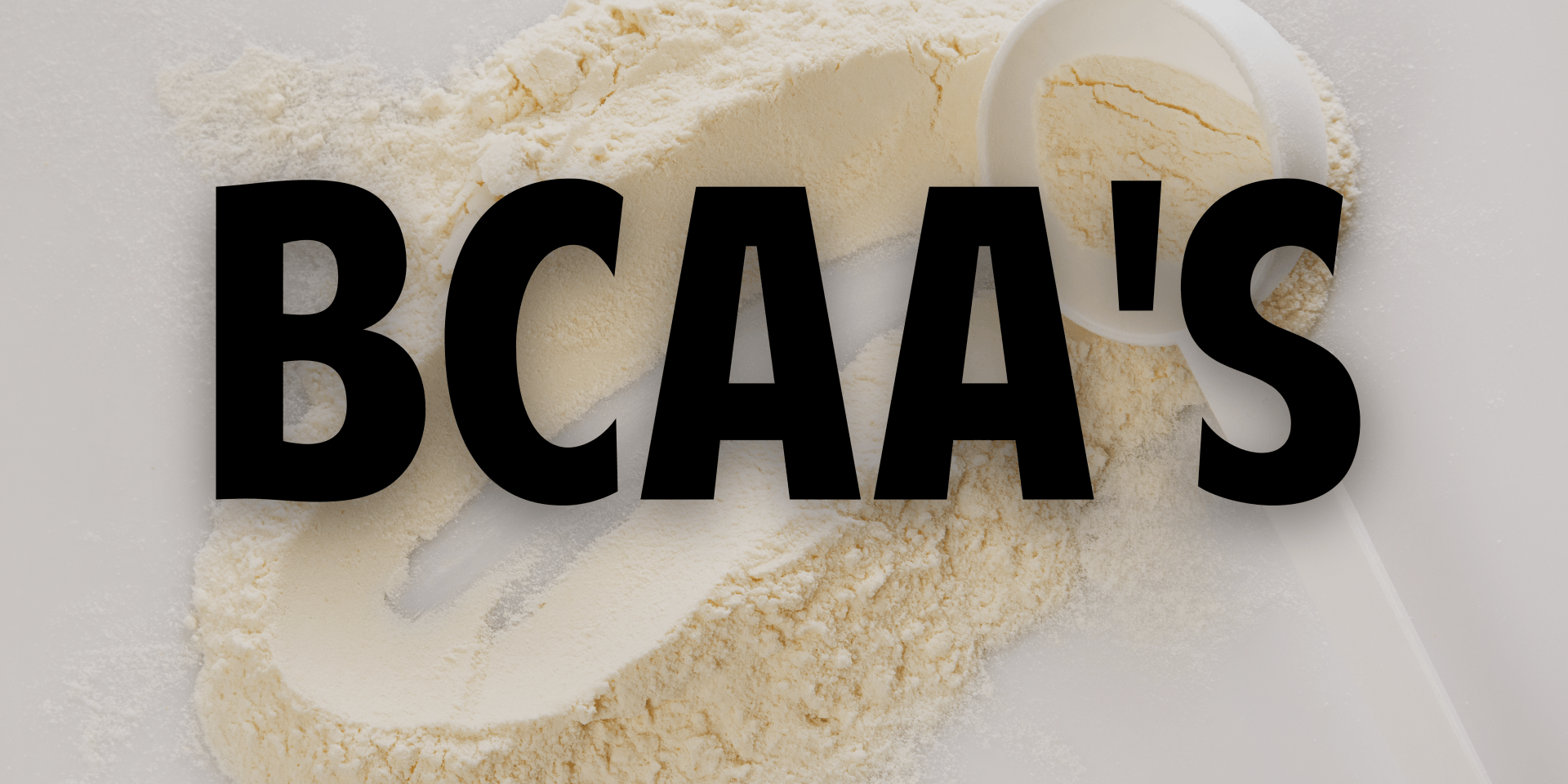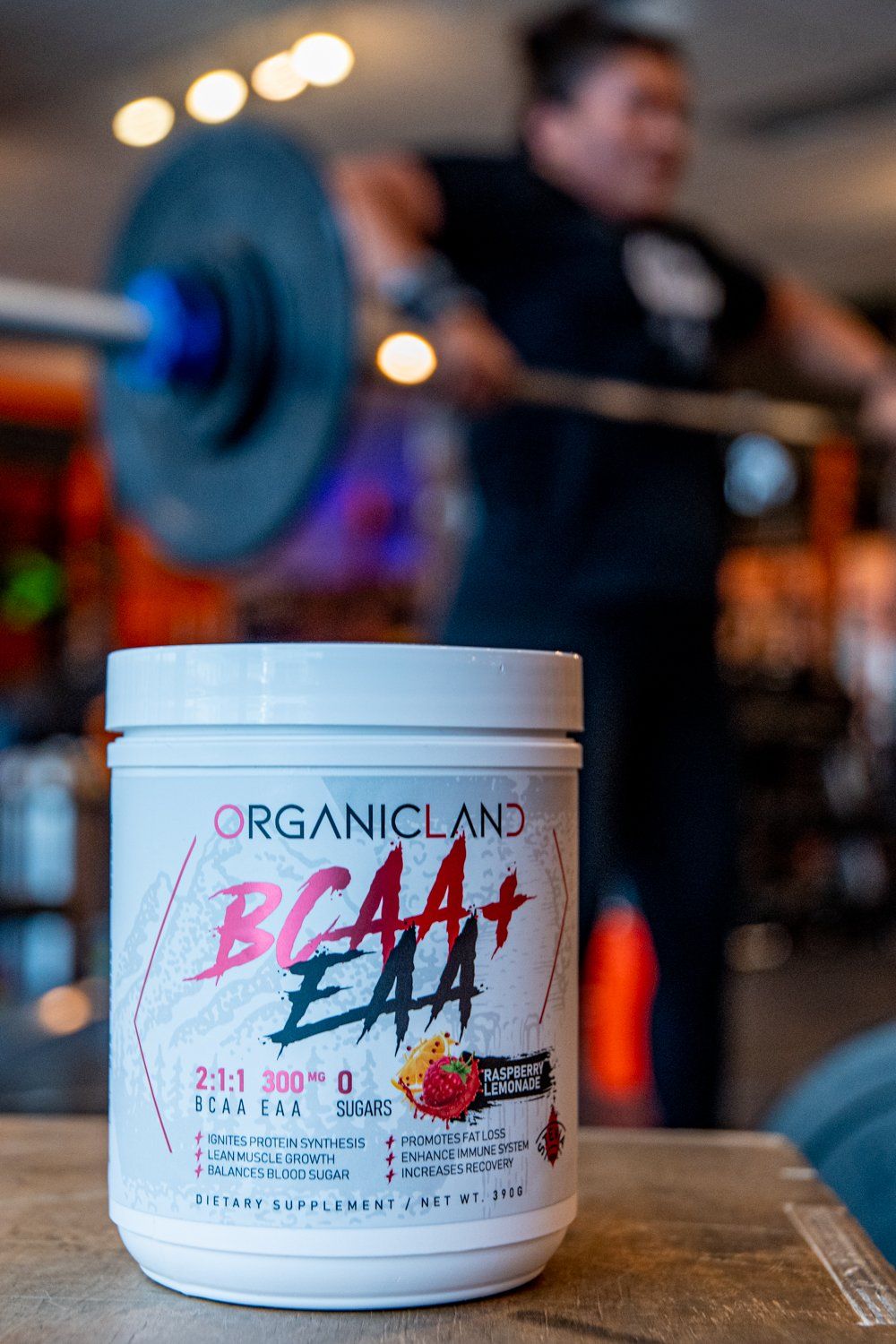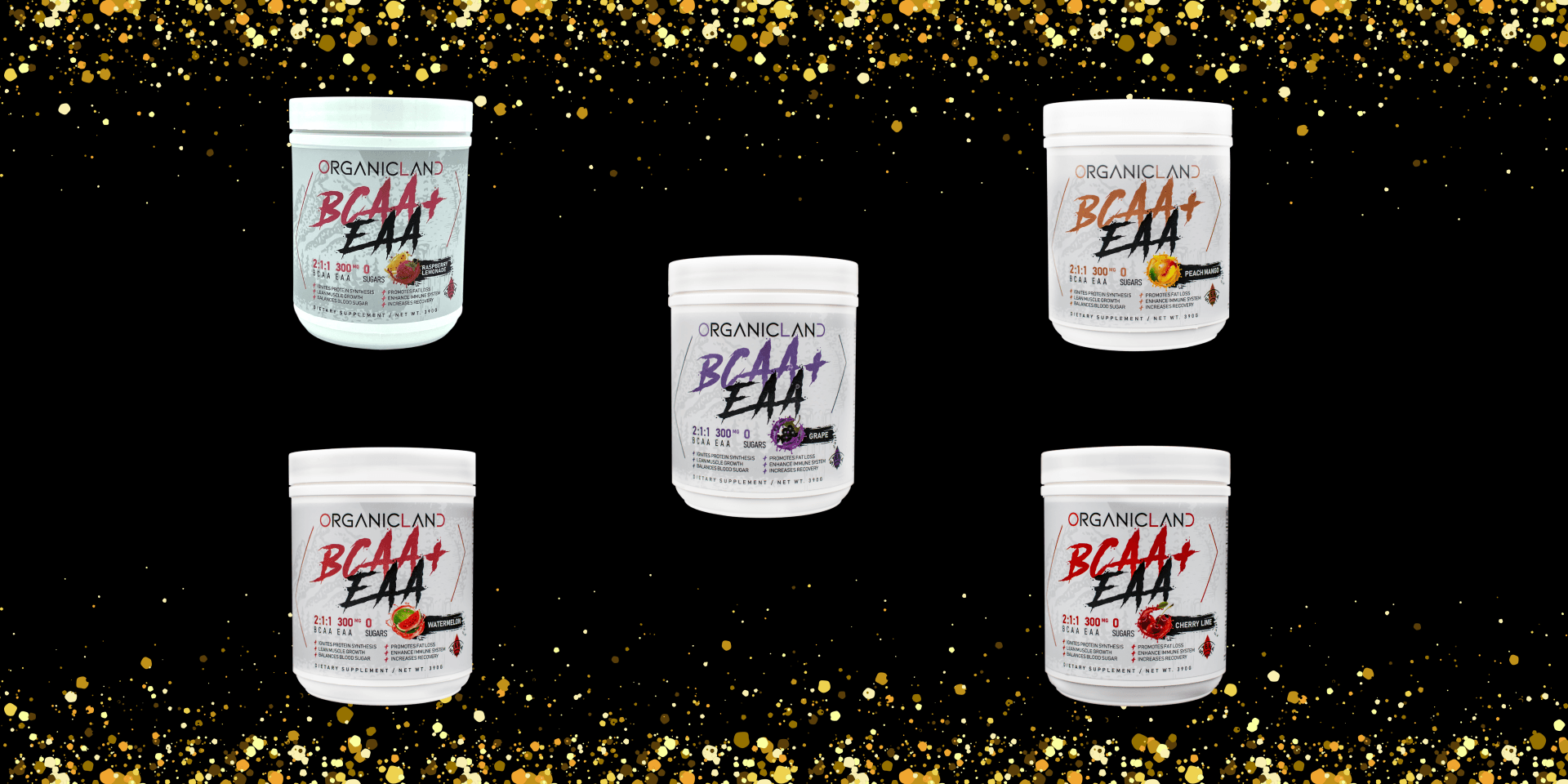BCAA'S
BCAA’S

Branched-chain amino acids, or BCAAs, invariably come up in discussions about increasing strength and muscle gains for various reasons. But what are they, and why should you consider adding them to your supplementation?
First, What Are Essential Amino Acids?
Leucine, isoleucine, and valine are three essential amino acids (BCAAs) that make up about 35% of the protein in your muscles. They serve as the building blocks of protein, just like other amino acids. These specific amino acids might also help in maintaining muscle glycogen stores, which fuel your muscles and reduce protein breakdown during exercise.
So What Do BCAAs Do Exactly?
BCAAs provide energy for your skeletal muscles when you train, which might offer you the advantage you need to push yourself to the maximum. When you take BCAA supplements, your glycogen reserves are preserved. This suggests your body has a dependable energy source that it can draw upon as you exercise. Having a lot of glycogen prevents your body from using muscle protein as fuel.

What Do BCAAs Help With?
BCAAs can improve muscle protein repair after exercise, especially when combined with carbohydrates. A growing body of evidence points to leucine as the BCAA that regulates the genetic signaling pathways responsible for muscle protein synthesis. That’s why leucine-to-isoleucine and valine ratios in high-quality BCAA supplements are higher.
When Should I Take BCAAs?
You can take BCAA supplements before, during, and after exercise. All three unique amino acids are present in the full spectrum of whey protein beverages. Use them along with a healthy, well-balanced diet for the best results. Make sure brown rice and other whole-wheat meals are a regular part of your diet if you're seeking an extra leucine boost. Isoleucine is abundant in nuts like cashews and almonds, while valine is found in dairy products, cereals, mushrooms, and peanuts. All animal products, including red meat, fish, eggs, and poultry, as well as vegetarian substitutes like soy, are full of BCAAs.

